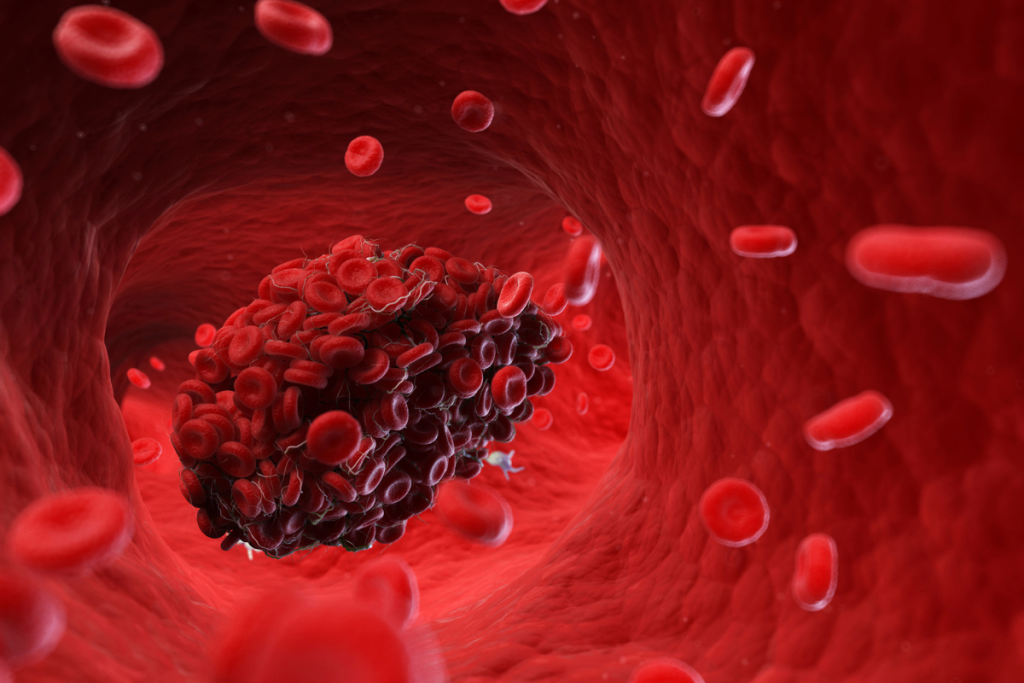
The increasing effects of aging and global population growth, along with improved cancer survivorship due to early detection and treatment, have made cancer a significant public health challenge. Active cancer (with ongoing treatment), venous thromboembolism (VTE), including pulmonary embolism and deep venous thrombosis, together rank as the second leading cause of death after cancer itself.
Low-dose aspirin has both antithrombotic and anticancer properties and has been proposed for use in certain cancer patients to help prevent the development of VTE. The risk of VTE can be decreased by low-dose aspirin without significantly increasing the risk of bleeding. However, it remains unclear whether this drug can reduce the recurrence of VTE in patients with cancer. The aim of the proposed research was to analyse whether the addition of aspirin to standard anticoagulation therapy leads to improved short-term outcomes in patients with cancer-associated VTE.
The researchers studied 2,358 adult cancer patients with VTE who were not being treated for chronic thromboembolic diseases and were not taking other antiplatelet agents, recorded from May 2017 to May 2024. There were 1,269 patients assessed following the propensity score matching (PSM): 423 in the aspirin group and 846 patients in the non-aspirin group.
All patients received direct oral anticoagulants (DOACs) and were followed up for 6 months after diagnosis. The primary outcome was VTE recurrence. Secondary outcomes included PE-related mortality, all-cause mortality, and major bleeding. The tertiary outcome, net clinical benefit (NCB), was defined as a composite of patients without VTE recurrence, major bleeding, and all-cause mortality.
The study found that the 6-month VTE recurrence rate was significantly lower (3.1%) in the aspirin group compared to the non-aspirin group (6.5%; hazard ratio [HR] 0.546, 95% confidence interval [CI] [0.298–0.988], P = 0.011). The rate of PE-related mortality was also lower in the aspirin group (2.8%) than in the non-aspirin group (5.4%; HR 0.535, 95% CI [0.283–0.909], P = 0.037).
However, there was no significant difference in all-cause mortality: 25.5% in the aspirin group and 27.0% in the non-aspirin group (HR 0.983, 95% CI [0.782–1.237], P = 0.887). The incidence of major bleeding was significantly higher in the patients on aspirin, 12.3% versus 5.4% (HR 2.448, 95% CI [1.646–3.641], P < 0.001). The net clinical benefit was similar between the groups: 64.8% in the aspirin group versus 65.5% in the non-aspirin group (HR 0.976, 95% CI [0.801-1.189], P = 0.812).
These findings suggest that while aspirin at low dose may reduce short-term recurrences of VTE and PE-related mortality, it does not improve net clinical benefit or overall survival and is associated with a significantly increased bleeding risk. The researchers suggest that the synergistic effect with other anticoagulants may contribute to the reduced recurrence.
Importantly, most of the aspirin users in the study were taking it long-term for cardiovascular indications. It is possible that there exist differences in individuals’ risk profiles that must be addressed. In other long-term follow-up trials showing the anti-cancer effect of aspirin, no improvement in mortality was observed at six months of follow-up of the cohort.
The study concludes that adjuvant low-dose aspirin may help reduce VTE recurrence and PE-related mortality in cancer patients receiving anticoagulation therapy. However, the associated bleeding risk warrants caution. The researchers call for randomized controlled trials to further validate these findings and support further clinical decision-making.
References: Xiong W, Deng Z, Cheng Y, et al. Adjuvant therapeutic efficacy of low-dose aspirin on short-term outcomes of patients with cancer-associated venous thromboembolism. BMC Med. 2025;23:444. doi:10.1186/s12916-025-04284-8













